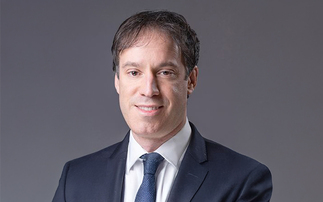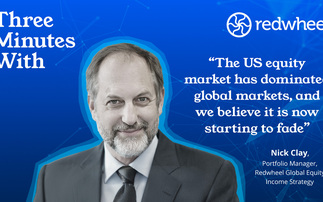Partner Insight: As the universe of multi-asset solutions continues to grow, the key to delivering long-term, stable returns often relies on how well the underlying drivers of risk and return are understood and managed in a portfolio. But how easy is it to model the possibilities?
The onset of the global financial crisis a decade ago instigated a new era for fund managers when it came to analysing risk and returns.
Indeed, it was during the worst periods of market stress in 2008 and 2009 that the underlying interactions between asset classes became clearer. Investors who believed risk was evenly spread between a range of investments found the reality was quite different, as assets that were supposedly 'safe' and resillient fell in tandem with the rest of the portfolio. It is no surprise therefore that since the crisis there has been a renewed focus on risk and return analysis. In the multi-asset sphere, where asset correlations and market volatility can change significantly, the key to delivering long-term, stable returns now resides predominantly in how well the underlying drivers of risk and return are understood and managed.
"In multi-asset fund management, a large part of the variation in investment returns are generated from a manager's long-term, strategic asset allocation decisions. This is why investors should ensure they are investing in the right asset classes and the right markets, at the right time," explains Dipanjan Roy, Senior Investment Strategist at Prudential Portfolio Management Group (PPMG). "But in order to achieve the best optimal allocation of assets in a portfolio, a manager needs to understand the risk and return characteristics of assets as well as how they can evolve over time. That is why capital markets research, assumptions and modelling is the first port of call within the strategic asset allocation process; we define this as the engine that drives a fund's investment process."
In-house tools
Most managers tend to use ‘off the shelf' capital markets research and modelling technology in their fund management process. These quantitative analytic tools use historic data to analyse the expected risks and returns of investing in different asset sub-classes. Managers then use this historical behaviour to model the future expectations of risks and returns which drive the asset allocation process. This is the reason why most managers are caught unaware when there is a large shift in the markets, such as the 2008-2009 financial crisis.
In order to navigate volatile financial markets, investors need knowledge of what has happened in the past, but also a broad understanding of why asset classes behave the way they do on a long-term basis. Yet many ‘off the shelf' asset allocation methods are regarded as being too short-sighted to do this, with outcomes heavily reliant on narrow frames of historical analysis.
"Looking at past events and expecting an asset class to continue behaving in the same way in the future is likely to lead to the wrong conclusions," explains Roy. "But if your analysis of risk and returns enables you to identify not just what has happened, but why it happened and the underlying factors that led to an asset moving in a specific way, this information allows you to make a more accurate call on how that asset class might behave in the future."
Roy argues popular asset-allocation processes are unable to do this however, predominantly because they have not kept up with the richness of data and technological improvements now available. As such, some asset-allocation tools may not be able to offer much choice beyond the somewhat limited and traditional conservative/adventurous multi-asset portfolios.
Click here for access to the full article and Multi-Asset magazine to read how modelling tools must evolve in order to better serve clients today.













